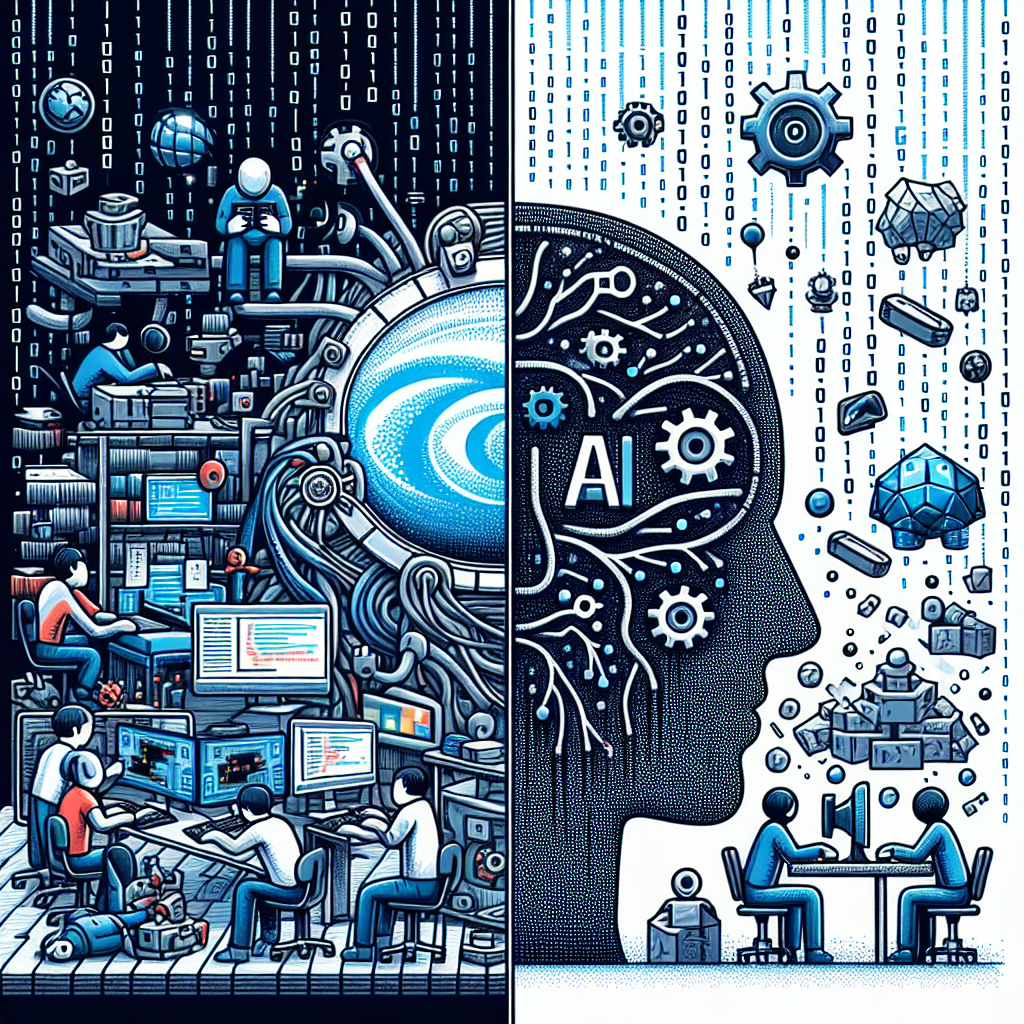The Benefits of AI in Game Design
Artificial Intelligence (AI) has revolutionized many industries, and the gaming industry is no exception. AI has transformed the way games are designed, developed, and played, offering a range of benefits that enhance the gaming experience for players. From creating more immersive worlds to improving gameplay mechanics, AI is reshaping the landscape of game design in exciting ways.
One of the key benefits of AI in game design is its ability to create more dynamic and realistic game worlds. AI algorithms can generate complex, procedurally generated environments that adapt to player actions in real-time. This means that every playthrough of a game can be unique, offering players a fresh and engaging experience each time they pick up the controller. AI can also be used to populate these worlds with intelligent NPCs (non-player characters) that behave in realistic ways, making the game world feel more alive and immersive.
AI can also be used to improve gameplay mechanics in a variety of ways. For example, AI algorithms can be used to create more challenging and responsive enemy AI, making combat encounters more engaging and tactical. AI can also be used to analyze player behavior and adjust difficulty levels dynamically to ensure that players are always challenged but not frustrated. Additionally, AI can be used to personalize the gaming experience for each player, tailoring the game to their preferences and playstyle.
Another benefit of AI in game design is its ability to enhance storytelling and narrative. AI algorithms can be used to create dynamic, branching storylines that adapt to player choices, creating a more interactive and immersive narrative experience. AI can also be used to generate dialogue and character interactions in real-time, making the game world feel more alive and responsive to player actions.
AI can also streamline the game development process, reducing the time and resources required to create high-quality games. AI tools can assist game developers in tasks such as level design, asset creation, and playtesting, allowing them to focus on more creative and strategic aspects of game design. This can lead to faster development cycles and more innovative game experiences for players.
In addition to these benefits, AI in game design can also help to improve accessibility and inclusivity in gaming. AI algorithms can be used to create adaptive gameplay systems that cater to players with different abilities and preferences. For example, AI can be used to adjust control schemes, difficulty levels, and visual settings to accommodate players with disabilities. This can help to make gaming more accessible to a wider range of players and create a more inclusive gaming community.
Overall, the benefits of AI in game design are numerous and far-reaching. From creating more immersive and dynamic game worlds to improving gameplay mechanics and storytelling, AI is transforming the way games are designed and played. As AI technology continues to advance, we can expect to see even more innovative and exciting uses of AI in the gaming industry in the future.
FAQs:
Q: How is AI used in game design?
A: AI is used in game design in a variety of ways, including creating dynamic and realistic game worlds, improving gameplay mechanics, enhancing storytelling and narrative, streamlining the game development process, and improving accessibility and inclusivity in gaming.
Q: What are some examples of AI in game design?
A: Some examples of AI in game design include procedurally generated environments, intelligent NPCs, adaptive difficulty levels, dynamic branching storylines, real-time dialogue generation, and adaptive gameplay systems for players with disabilities.
Q: How does AI benefit game developers?
A: AI benefits game developers by streamlining the game development process, reducing the time and resources required to create high-quality games, and assisting developers in tasks such as level design, asset creation, and playtesting.
Q: How does AI benefit players?
A: AI benefits players by creating more immersive and dynamic game worlds, improving gameplay mechanics, enhancing storytelling and narrative, and improving accessibility and inclusivity in gaming.
Q: What are some future trends in AI in game design?
A: Some future trends in AI in game design may include more advanced procedurally generated environments, more intelligent and realistic NPCs, enhanced adaptive difficulty levels, dynamic branching storylines, and more personalized and interactive gameplay experiences for players.

